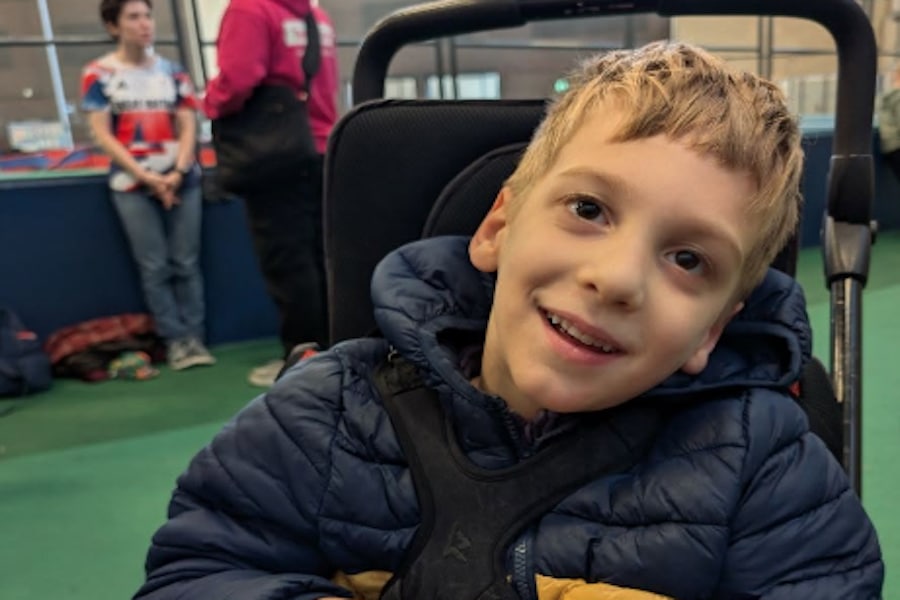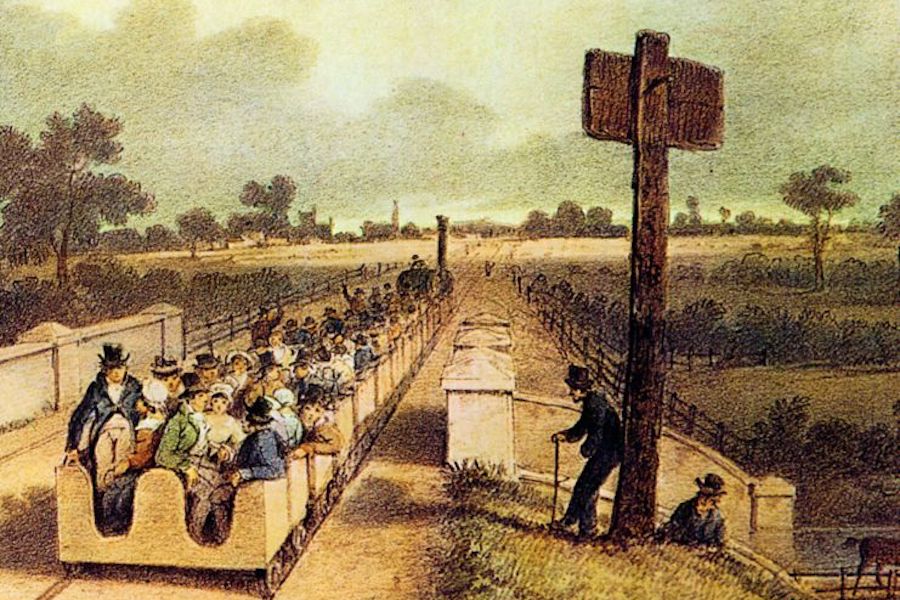Meet the woman who went from volunteering in Manchester to fighting famine in Yemen
- Written by Emily Oldfield
- Last updated 7 years ago
- Charity, City of Manchester, People
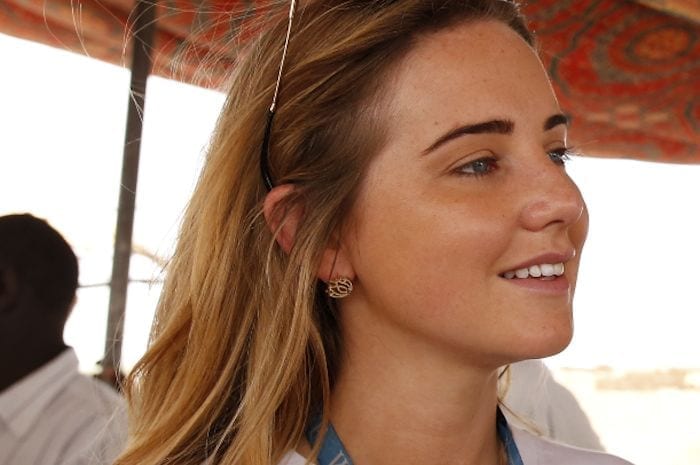
World Humanitarian Day on Saturday 19 August celebrates the work of aid workers across the globe. Ordinary people doing extraordinary things in some of the most dangerous parts of the world.
Esme Conway is one of them. She’s been named ‘a hero who is making an international impact’ by the Department for International Development.
Her work has also been recognised by International Development Secretary of State, Priti Patel.
27-year-old Esme studied at Manchester High School for Girls and the University of Manchester before going on to become an aid worker for the World Food Programme.
She is currently based in Yemen – one of the Arab world’s poorest countries – where people are badly affected by war and disease and where at least two thirds of the population live in hunger.
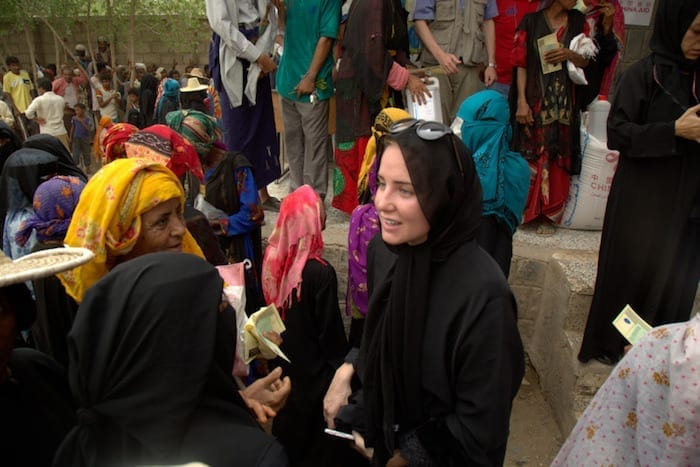
As special assistant to the representative of the World Food Programme, she plays a crucial role in ensuring that people there can get food.
Esme’s position is not without risks. Due to the unpredictable security situation in Yemen, the United Nations community in Sana’a, where she is based, has become a restricted environment. Esme and her team all live together in a guesthouse, are not able to travel to the city and are only allowed to leave the accommodation once a day, five times a week.
Esme’s selflessness in the face of such desperate need is inspirational. From her time in Manchester when she volunteered with Refugee Action, to joining the World Food Programme – with positions first in Geneva and then Sudan – her work is making a massive difference.
But she still has her connections in the north, and admits to missing home cooked food – especially toad in the hole.
What does a normal day look like for you?
My daily tasks include keeping the Representative up to date of all security and operational developments, including information on any restrictions which may impact WFP’s ability to deliver food to those in need.
In addition, I support the representative in Yemen and colleagues by drafting advocacy messaging for our own internal channels, media and donors – such as the UK’s Department for International Development – for fundraising and advocacy purposes, as well as arranging for high delegation visits to Yemen.
Usually, we return back to the guesthouse by 6pm and we might go to the gym, eat dinner together and resume our work.
What is the most challenging aspect of your job?
Working in a restricted environment is tough. Because of the security situation, movement is extremely limited and we are dependent on the United Nations Humanitarian Air Service to get into Yemen [there are no commercial flights into Sana’a]. We can only travel to the office and back.
Our work also faces a lot of challenges due to the security environment and sometimes what we are trying to deliver on the ground can be interrupted. For example, sometimes ships carrying important humanitarian aid are not able to dock into the port or our trucks cannot move, which delays our beneficiaries from receiving life-saving assistance.
Working and living in an emergency setting means anything can change and you must always be ready to respond.
And the most satisfying?
Once all the appropriate security procedures are in place, we are often able to travel to cities across Yemen and visit the people we provide support to on a daily basis.
Recently I travelled with the representative to Hodeidah governorate, where WFP feeds some 782,000 people who entirely depend on our support.
I was also able to visit Hodeidah port and see the unloading of food from a ship. The port is one of the most critical entry points for humanitarian aid into Yemen and has been the subject of a lot of media attention, as much of its infrastructure has been damaged due to the war. Some 70 percent of humanitarian relief items arrive through this port and the United Nations works so hard to make sure access to the port is not restricted.
How does your work directly benefit the people of Yemen?
17 million people – two thirds of the Yemeni population – are hungry and do not know where their next meal is coming from.
Each person who works at the World Food Programme – who implements the generous contributions from our donors – keeps people alive and works to prevent Yemen from falling into famine.
Because of the war, people are not receiving salaries and they cannot buy enough food to feed their children and relatives. Our work, from advocacy to logistics, ensures that people are fed on a monthly basis and kept alive.
What is the one thing you want people to know about your work?
I want people to know that Yemen is a beautiful country, full of resilient people who, despite the war, continue to work where they can.
I am grateful for every penny that is given to the humanitarian effort in Yemen. Every penny goes towards keeping people alive and averting a famine. Without this assistance, we cannot do our job.
I am also very proud to be a UK national as the UK government is contributing considerable amounts of aid to the people of Yemen, including to the World Food Programme. Every month WFP aims to provide 7 million people with food and without WFP assistance, the Yemeni people do not have any alternative method of feeding themselves.
Tell us about the moment you realised your job is worthwhile
On a recent field visit to Hodeidah, our group spoke with a family who receives WFP food on a monthly basis. One father admitted that when he sees that his children have fallen asleep early, he does not wake them up as he knows that the food is limited and instead, prefers to leave them to sleep until the morning.
It was at this point that I realised that my job is worthwhile, because I help to drive advocacy to combat the dire humanitarian situation in Yemen, so we are able to raise resources which can provide meals and some relief to parents who, without WFP, are unable to support their children.
What’s the most touching moment you’ve experienced in your role?
Driving across Yemen, we stopped on a dirt track as we had a problem with our car. We met a boy aged 5 and his sister aged 6 who were walking alone with no shoes on from a stream where they had collected water and were carrying it back to their home. They would probably be walking for a couple of hours.
It was a touching moment as, despite the poverty they were living in, they were so excited to meet us. It reminded me of how lucky we are and that everyone in the world, especially children, have the right to clean water and three meals a day.
What do you miss most about home?
I miss being able to move around freely, my independence, visiting my friends, going to the cinema and eating home cooked northern meals – like toad in the hole!
Growing up in the UK, I was surrounded by many people who had lived through conflict and had found peace in the UK. After hearing their experiences, I always knew that I wanted to work in conflict-affected environments to help those who are less fortunate than me. I always knew I wanted to work as a humanitarian.
Be inspired this World Humanitarian Day.
- This article was last updated 7 years ago.
- It was first published on 19 August 2017 and is subject to be updated from time to time. Please refresh or return to see the latest version.
Did we miss something? Let us know: [email protected]
Want to be the first to receive all the latest news stories, what’s on and events from the heart of Manchester? Sign up here.
Manchester is a successful city, but many people suffer. I Love Manchester helps raise awareness and funds to help improve the lives and prospects of people across Greater Manchester – and we can’t do it without your help. So please support us with what you can so we can continue to spread the love. Thank you in advance!
An email you’ll love. Subscribe to our newsletter to get the latest news stories delivered direct to your inbox.
Got a story worth sharing?
What’s the story? We are all ears when it comes to positive news and inspiring stories. You can send story ideas to [email protected]
While we can’t guarantee to publish everything, we will always consider any enquiry or idea that promotes:
- Independent new openings
- Human interest
- Not-for-profit organisations
- Community Interest Companies (CiCs) and projects
- Charities and charitable initiatives
- Affordability and offers saving people over 20%
For anything else, don’t hesitate to get in touch with us about advertorials (from £350+VAT) and advertising opportunities: [email protected]

Areas ‘astonishing’ transformation will include Manchester’s first Lido in decades
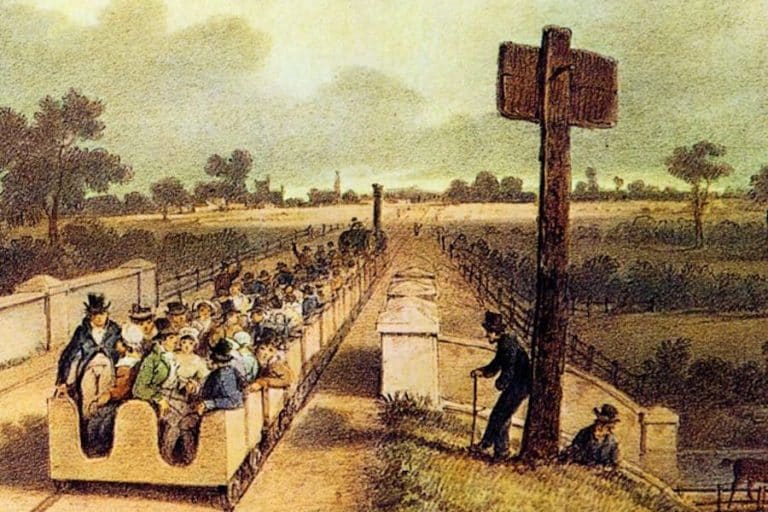


How shared ownership can get you on the property ladder in 2025

New exhibition unravells the truth about cotton and slavery in Manchester’s industrial rise









